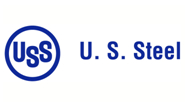Market Segment

June 10, 2021
US Steel To Make NGOES at Big River by Q3 '23
Written by David Schollaert
U.S. Steel wants to make Big River Steel the leader in non-grain-oriented electrical steels (NGOES). To that end, the Pittsburgh-based integrated steelmaker will invest $450 million at Big River’s steel mill in Osceola, Ark., to target the growing demand from the electric vehicle market.
![]() Funded entirely from cash generated at Big River, the NGOES expansion will target a growing customer base in Toyota, GM and Ford—whose electrification spending is expected to surpass $30 billion by 2025, according to a company presentation. The investment will also allow U.S. Steel to use Big River’s technology to produce thinner and wider NGOES to meet a wide-range of specific customer requirements.
Funded entirely from cash generated at Big River, the NGOES expansion will target a growing customer base in Toyota, GM and Ford—whose electrification spending is expected to surpass $30 billion by 2025, according to a company presentation. The investment will also allow U.S. Steel to use Big River’s technology to produce thinner and wider NGOES to meet a wide-range of specific customer requirements.
NGOES is used not only in electric vehicles but also in power generation applications.
The new NGOES line will have annual production capacity of 200,000 tons. Production of the first NGOES coils are expected to begin in September of 2023.
U.S. Steel’s investment has a strong return prolife with low capital intensity thanks to the significant price premium NGOES commands over hot-rolled coil, the company said in a presentation.
Permitting for the new project is already in place. A U.S. Steel spokesperson declined to provide a ground-breaking date.
By David Schollaert, David@SteelMarketUpdate.com







